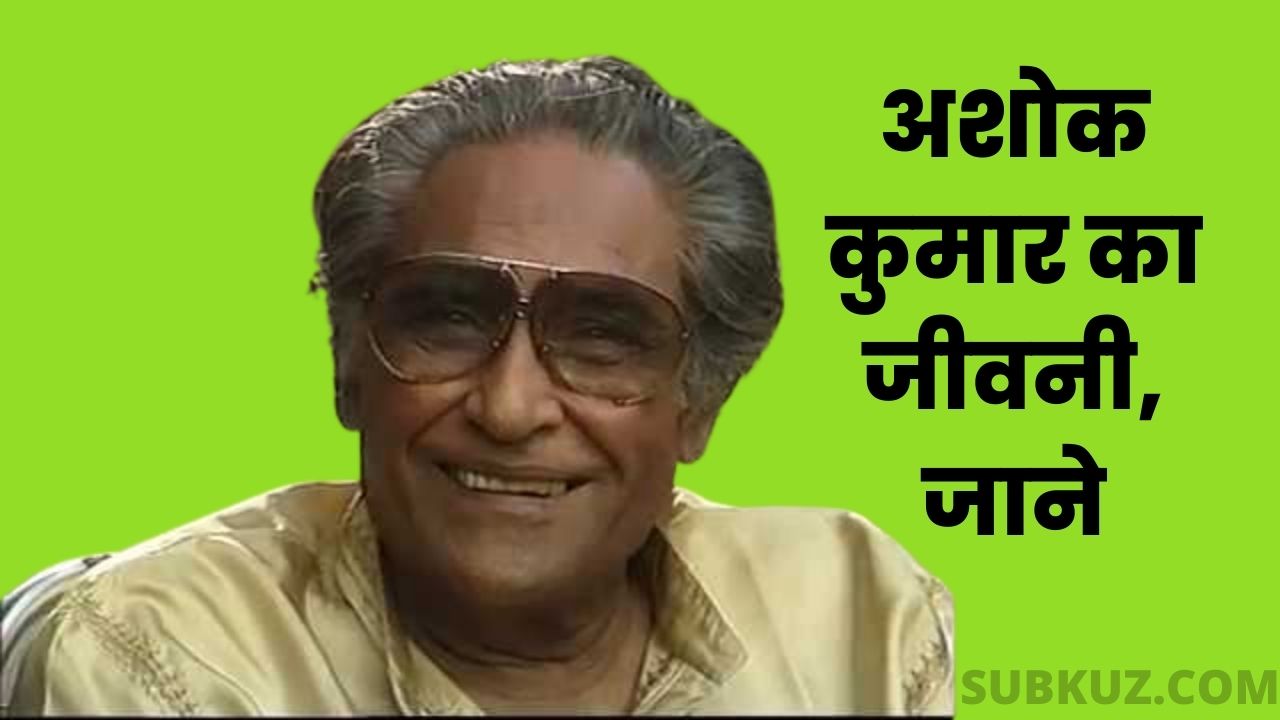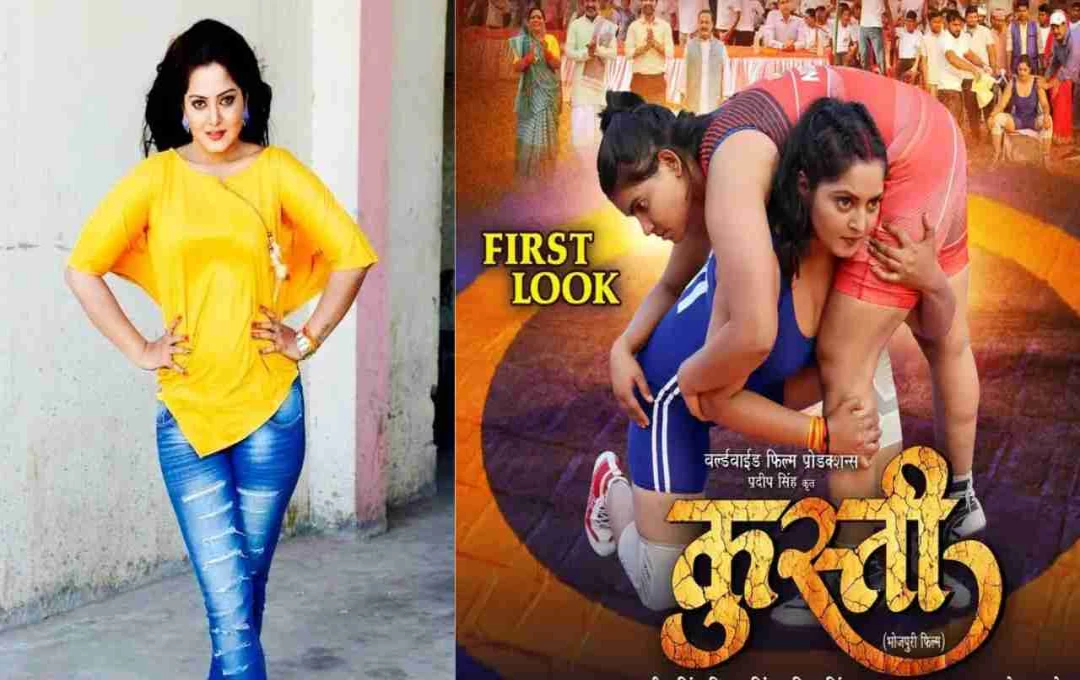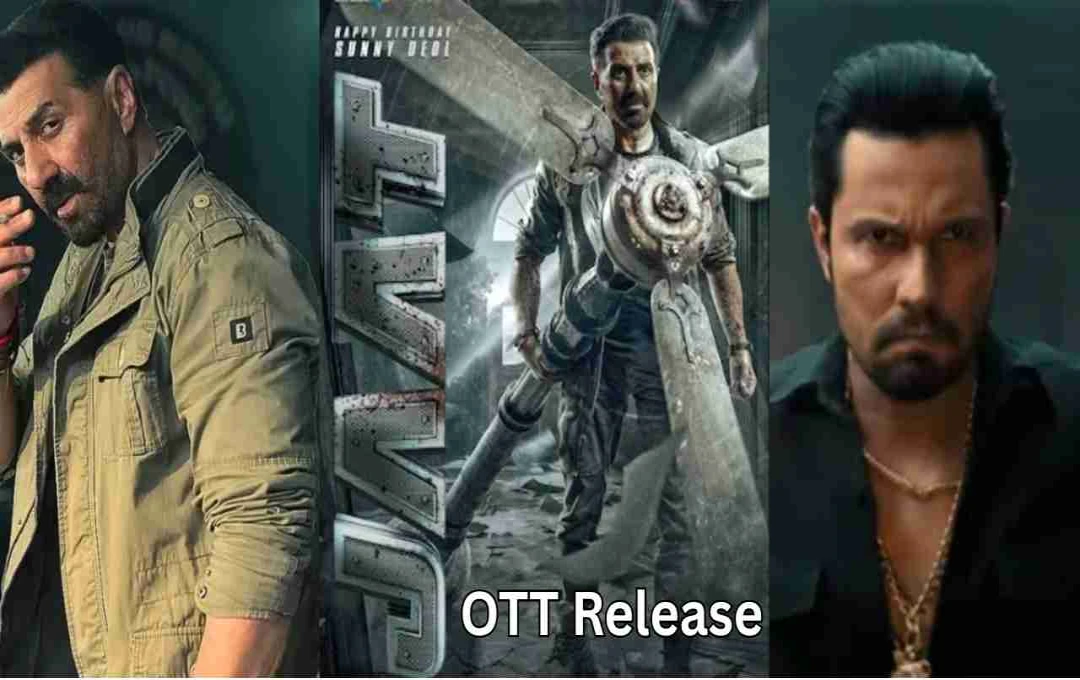Ashok Kumar, a prominent actor of the early Hindi film era, established his stardom through natural acting, defying the conventions of popular Parsi theatre. He never confined himself to a single image, captivating audiences with his unique persona. His playful nature and versatility in portraying any character made him a true superstar.
Birth and Early Life
Actor Ashok Kumar was born in the Adampur Mohalla of Bhagalpur, Bihar, on October 13, 1911. His father's name was Kunjalal Ganguly, and his mother's name was Gauri Devi. His father was a lawyer in Khandwa, Madhya Pradesh, and his mother came from a well-off family. His childhood name was Kumudlal Ganguly. The Ganguly family, of Brahmin origin, settled in Khandwa, Madhya Pradesh. Ashok Kumar had two brothers, Anoop Kumar and Kishore Kumar, and a sister, Satti Devi. Both his brothers were also actors and singers in films. Kishore Kumar, the singer and actor, and Anoop Kumar, the actor, were his younger siblings. In fact, both of them were inspired to enter films by Ashok Kumar himself. The three brothers entertained audiences with films like "Chalti Ka Naam Gaadi" (The Car) and "Badhti Ka Naam Daadi" (The Growing Beard), which is still considered a superb comedy film today.
Early Education
Ashok Kumar completed his primary education in Khandwa, Madhya Pradesh, and later pursued his graduation from Allahabad University. He also studied at Presidency College, Kolkata. In 1934, Ashok Kumar began working as a laboratory assistant at the New Theatre. Later, his brother-in-law, Sashadhar Mukherjee, brought him to Bombay Talkies, where he began his film career.
Marital Life
Ashok Kumar married Shobha Devi on April 20, 1936. Ashok and Shobha had one son and three daughters. The son's name was Arup Kumar Ganguly, and the daughters were Preeti Ganguly, Bharti Jaffery, and Rupa Ganguly. Preeti Ganguly also acted in several films. She founded the Academy of Dramatic Arts in 1993. He was affectionately called Dada Moni.
Ashok Kumar's Career
Ashok Kumar, after studying at Presidency College, Kolkata, broke away from conventional acting styles, developing his own unique and natural approach. He brought a genuine heart to cinema, earning numerous awards and starring in many successful films.
Ashok Kumar was initially drawn to the technical aspects of filmmaking and sought success in that field. Once he began a project, he always approached it with complete dedication. This dedication extended to his acting career, where he embraced the role with complete seriousness. He seamlessly became a natural performer, appearing as if it was an innate skill.
In 1936, the heroes of Bombay Talkies' film "Jivan Nayya" fell ill unexpectedly, and the company needed a new actor. Himachand Rai, the studio owner, noticed the charismatic laboratory assistant, Ashok Kumar, and offered him the role. This marked the start of his acting journey.
Ashok Kumar's Hit Films
His next film was "Achhoot Kanya" (The Untouchable Daughter), released in 1937, focusing on the untouchable problem, starring Devika Rani. This successful film elevated Dada Muni to the stature of a major star.
Ashok Kumar's image as a star solidified with the 1943 film "Kismat" (Fate). In this era of heroes modeled after Ram, Ashok Kumar, smoking a cigarette on screen, took a risk by portraying an anti-hero. This gamble proved highly beneficial, and the film achieved immense success. His 1949 film "Mahal" (Palace), featuring Madhubala, was also a great success.
Even when Dilip, Dev, and Raj were at the height of their popularity, Ashok Kumar maintained his own considerable appeal and continued to deliver successful films.
From 1959 to 1961, he appeared in films like "Bap Bete" (Father and Son), "Nayi Rahe" (New Paths), "Dhaka" (Dhaka), "Dhul Ka Phool" (The Flower of Dust), "Kalpana" (Imagination), "Hospital", "Aanchal", "Monsoon", "Kala Aadmi" (Black Man), and "Kaanoon" (Law). He also appeared in "Dark Street," "Flat No. 9," "Warrant," "Dharmputra," and "Crorepati." In his later years, he took on supporting and character roles, but maintained his acting prowess. His notable films in this period include Kaanoon (Law), Chalti Ka Naam Gaadi (The Moving Car), Victoria Number 203, Chhoti Si Baat (A Small Matter), Shauqeen (Passionate), Mili Khusburot Bahu (The Beautiful Bride), Begum (The Lady), Paakeezah (The Pure), Gumrah (Lost), Ek Hi Raasta (One Way), Bandini (The Prisoner), Mamta (Affection), and more, including villainous roles.
Ashok Kumar also ventured into television, portraying the anchor in India's first soap opera, "Hum Log." He became an integral part of "Hum Log," and viewers eagerly anticipated his concluding comments, which he always delivered with a unique flair. He also had a memorable role in the serial "Bahadur Shah Zafar."
His performance in the film "Aashirwad" (Blessings) remains a highlight of his acting career. He portrayed a completely new type of character. His song "Railgadi Railgadi..." from this film gained immense popularity. He received the Filmfare Best Actor Award for this film.
Awards Received by Ashok Kumar
1959: Sangeet Natak Akademi Award
1962: Best Actor Award for "Rakhi"
1963: Best Actor Award for "Gumrah"
1969: Best Actor Award for "Aashirwad"
1988: Dadasaheb Phalke Award
1994: Lifetime Achievement Award from Star Screen
1999: Padma Bhushan Award
2007: Special Award
Death
After nearly six decades of captivating audiences with his exceptional performances, Ashok Kumar suffered from asthma during the last 30 years of his career. He passed away on December 10, 2001, due to a heart failure. He continues to be an inspiration to new actors today.
His popular films include Paakeezah, Begum, Aartee, Bandini, Aashirwad, and Chalti Ka Naam Gaadi.
Kishore Kumar's Memorable Thoughts
If you look at every place in the world with love, it looks very beautiful.
Sometimes fate can deceive a person, but God can never deceive.
Love is a feeling that teaches people sacrifice and selflessness.
If you want something you've never had before, you have to do something new that you've never done before. That way, you might get it.
The difference between poverty and wealth should never be judged by looking at their status. Many wealthy people are very small-hearted.
So, the difference between poverty and wealth is not just about status, but also about the heart.
Most of the time, we want to get what is expensive, and we find our happiness in it. But the truth is that in life, the things we are truly satisfied with are love, happiness, and laughter.
Until you become something in life, your loved ones will treat you like strangers.
A true friend is one who, even if the whole world is against you, everyone distances themselves from you, but in such a situation, they stand by you. They never want to distance themselves from you under any circumstances and always support you.
Every day, every morning brings a new beginning for you. Give yourself the opportunity to improve yourself each day and use it. Be determined to do something good in the world to prove yourself.
```








